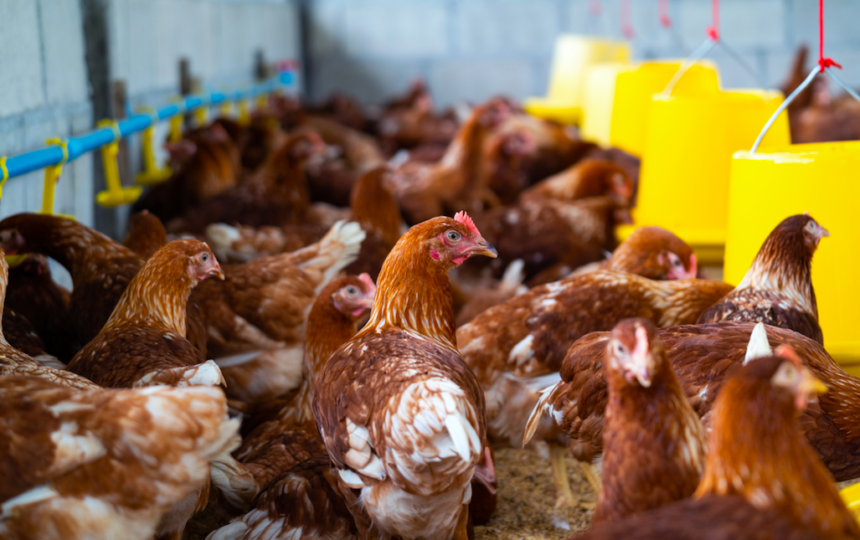Newcastle Disease is a highly contagious viral infection that affects chickens worldwide, including South Africa. It can lead to severe illness and even death in infected birds. As a chicken owner, it is important to be vigilant and familiarize yourself with the signs and symptoms of Newcastle Disease to prevent its spread and protect your flock. In this article, we will discuss the common signs that your chickens may have Newcastle Disease.
- Respiratory Distress: One of the primary signs of Newcastle Disease is respiratory distress in infected chickens. This may manifest as coughing, sneezing, wheezing, or gasping for breath. You may notice your chickens exhibiting rapid or labored breathing, nasal discharge, or swollen sinuses. Respiratory symptoms are often the first indication of Newcastle Disease and should be taken seriously.
- Reduced Egg Production: Newcastle Disease can significantly impact egg production in infected hens. If you observe a sudden decline in egg production or notice that the eggs have thin or soft shells, it could be a sign of Newcastle Disease. The virus affects the reproductive system of hens, leading to a decrease in egg-laying capacity.
- Diarrhea: Diarrhea is another symptom that may occur in chickens infected with Newcastle Disease. The virus affects the digestive system, leading to loose or watery droppings. Pay close attention to changes in the consistency, color, or odor of your chickens’ droppings.
- Depression and Weakness: Infected chickens often exhibit signs of depression and weakness. They may appear lethargic, reluctant to move, or have difficulty standing. Their feathers may be ruffled, and they may show a lack of interest in food or water. Newcastle Disease can cause general malaise and a decrease in overall activity levels.
- Neurological Signs: In severe cases, Newcastle Disease can affect the nervous system of infected chickens. This may result in neurological signs such as paralysis, tremors, twisting of the neck or head, or circling behavior. These neurological symptoms are more commonly observed in advanced stages of the disease.
- Swelling of the Face and Eyes: Some chickens with Newcastle Disease may develop facial swelling, particularly around the eyes and beak. The swelling may cause the eyes to become partially or completely closed, making it difficult for the chicken to see. Pay attention to any changes in the appearance or behavior of your chickens’ eyes and face.
- High Mortality Rate: Newcastle Disease can have a devastating impact on a flock, often resulting in high mortality rates. If you notice a sudden increase in deaths among your chickens, especially if accompanied by other signs mentioned above, it is crucial to investigate the possibility of Newcastle Disease and take appropriate measures to prevent further spread.
It is important to note that the signs and severity of Newcastle Disease can vary, and not all infected chickens may exhibit all of these symptoms. If you suspect Newcastle Disease in your flock or observe any unusual signs, it is recommended to consult with a veterinarian or notify the relevant authorities for diagnosis and guidance.
Prevention and control are key to managing Newcastle Disease. Vaccination, good biosecurity practices, and quarantine protocols for new birds are essential measures to reduce the risk of infection. Early detection, prompt reporting, and implementing appropriate control measures are crucial to preventing the spread of Newcastle Disease within your flock and the wider poultry community.
Join 'Farmers Mag' WhatsApp Channel
Get the latest Farming news and tips delivered straight to your WhatsApp
CLICK HERE TO JOIN






